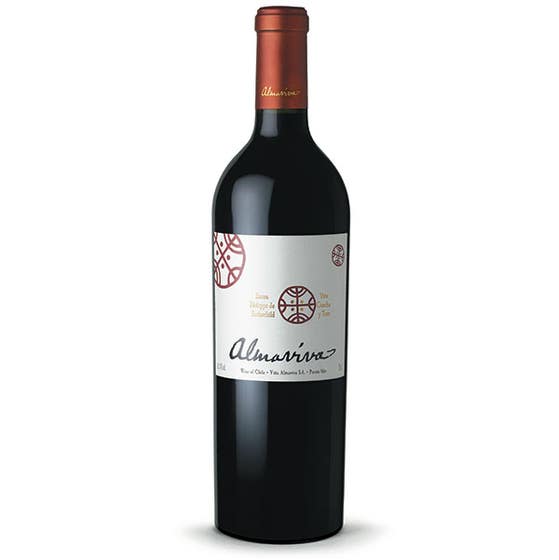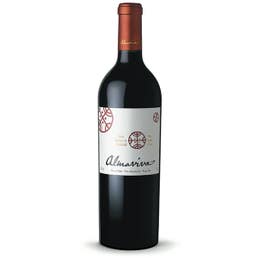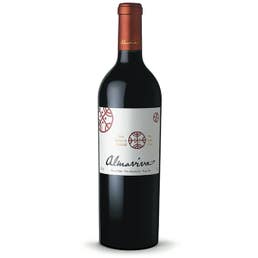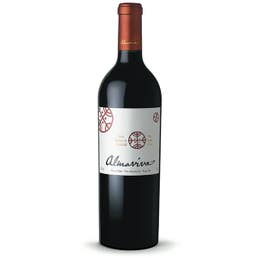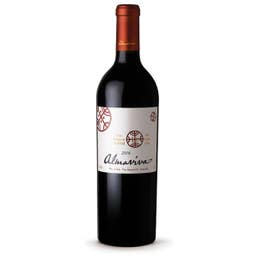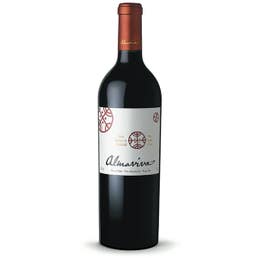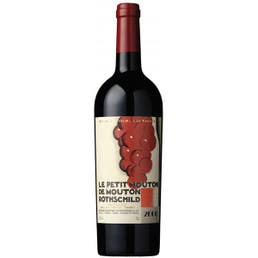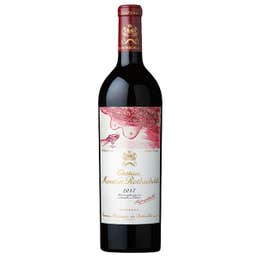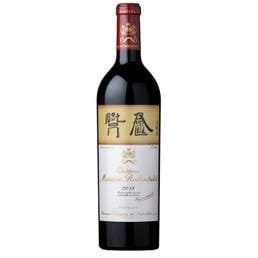Vina Almaviva 2018
• Domaine: Vina Almaviva
• Appellation: Maipo Valley, Wine of Chile
• Classification: Maipo Valley, Puente Alto, Chile
Almaviva is a premium wine produced in Chile's Maipo Valley, one of the country's most renowned wine regions. The wine is a joint venture between the French owner of Château Mouton Rothschild, Baroness Philippine de Rothschild, and Chile's Concha y Toro. The first vintage of Almaviva was produced in 1996. Even though the Baroness passed away on August 23, 2014, her three children continue investing in this project, which has since gained a reputation as one of Chile's finest wines.
Almaviva is a blend of classic Bordeaux grape varieties, including Cabernet Sauvignon, Carmenere, Cabernet Franc, Merlot, and Petit Verdot. The wine is aged in French oak barrels for around 18 months before bottling. The resulting wine is rich, complex, and elegant, with a deep ruby color and aromas of black fruits, spices, and vanilla.
Almaviva is considered a wine for special occasions and is highly sought after by collectors and connoisseurs. The wine has received numerous awards and accolades, including a 100-point rating from the influential wine critic Robert Parker.
HISTORY
In 1997, Baroness Philippine de Rothschild, owner of Mouton Rothschild, and Eduardo Guilisasti Tagle, owner of Viña Concha y Toro, entered into a partnership to create an exceptional Franco-Chilean wine called Almaviva.
The name Almaviva has a Hispanic sonority. It actually belongs to classical French literature: Count Almaviva is the hero of The Marriage of Figaro, the famous play by Beaumarchais (1732-1799), later turned into an opera by the genius of Mozart. The label bearing the name Almaviva is in Beaumarchais’ own handwriting.
Though not claimed by the owners, the referral to a play reminds a curiously minded observer of the successful theatrical career left behind by the Baroness Philippine de Rothschild to assume leadership at her father's business when he died. Her stewardship of the venerable Bordeaux estate plus her success in breaking new grounds led her to be made an Officier of the Légion d'Honneur in 2007. In 2013, she was given a lifetime achievement award by the Institute of Masters of Wine.
Almaviva was intentionally chosen to pay homage to Chile’s ancestral history, with three reproductions of a stylized design, which symbolizes the vision of the earth and the cosmos in the Mapuche civilization. The design appears on the kultrun, a ritual drum used by the Mapuche. Two great traditions thus join hands to offer the whole world a promise of pleasure and excellence.
Tasting Notes
"A Cabernet Sauvignon mixed with 23% Carménère, 5% Cabernet Franc, 5% Petit Verdot and 2% Merlot from Puente Alto, Maipo that spent 19 months in French barrels. Reflecting a warm, dry year, the nose presents notes of black currant and raspberry jam, black tea leaves and sweet spices with a touch of kirsch. Gentle on the palate with firm, pleasant tannins, a loose structure, bold flavor and intriguing expression. A hint of menthol makes itself felt at the back of the mouth." - Joaquin Hidalgo, vinous.com, (March,2020), Rating: 94, Drink:2020-2035
"My last Chile article questioned whether 2018 had been the best vintage of the last 20 years in the country, so I was very curious to taste the 2018 Almaviva. 2018 was a cooler year with more rain and a later budding and ripening of the grapes, especially in a cooler terroir close to the Andes, as is the case with Almaviva. The harvest was slow, as temperatures went down, further increasing the balance between freshness and ripeness of the grapes. The varietal breakdown is 72% Cabernet Sauvignon, 19% Carmenère (from Peumo), 6% Cabernet Franc and 3% Petit Verdot. The grapes ripened thoroughly, as the 14.9% alcohol of the final blend shows, a little higher than previous years and with similar readings of acidity. The wine feels quite complete and nicely crafted; they use all of their resources and technology to select the perfect grapes that ferment pristinely destemmed and crushed in stainless steel tanks at 25 to 28 degrees Celsius, mostly with selected yeasts. Malolactic was part in barrique and part in tank during the alcoholic fermentation. It matured for 18 months in French oak barrels, 73% of them new and the remaining 27% second use. It's a solid, well-built and seamless Almaviva, with clout and balance. 2018 was a more homogeneous vintage, globally considered one of the best in recent times in Chile. They identify a great vintage when they see more homogeneous quality in their different wines, and winemaker Michel Friou explained that this year some wines from three- or four-year-old vines were really good. It feels like a very complete wine, from a year when the seasons were marked and when the plant followed the development with almost textbook conditions—the grapes ripened thoroughly, developing more flavors and nuances while keeping the freshness. This is still a baby, extremely young and creamy, but it is still approachable; there are no edges, but what's remarkable is the balance and stuffing and all the necessary ingredients for a great development in bottle. This is quite different from 2016; it's a vintage with power and clout, a wine that has fruit and intensity and is balanced, without the concentration and tannins of the 2017. It’s a more complete year that combines the finesse of 2016 with more thorough ripeness. The spicy and peppery character comes through with some time in the glass. 200,000 bottles produced. It was bottled during the last week of January 2020." - Luis Gutiérrez, Robert Parker's Wine Advocate (8/31/2020, Issue 250), Ratings: 96, Drink: 2020-2035
| LWIN | 1083246 |
|---|---|
| Stock Status | Out of Stock |
| Appellation | Maipo Valley |
| Vintage | 2018 |
| Delivery Timeline | 3 to 6 months |
| Brand | Viña Almaviva |
| Shipping Weight | 3.000000 |

